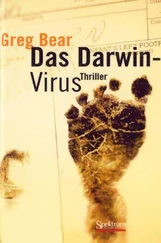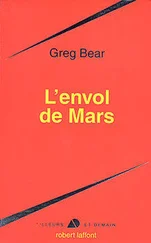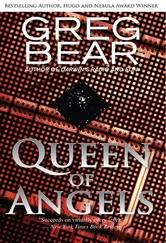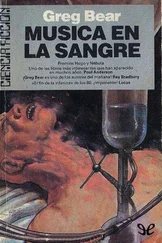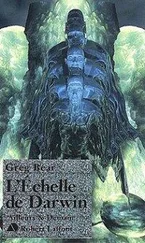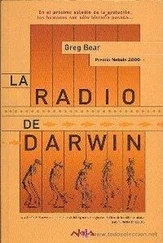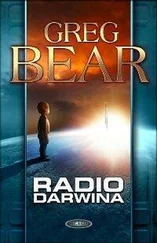Despite its beauty, Georgia had many blemishes: civil war, assassinations, and now, mass graves.
They lurched into a wall of rain. The windshield wipers flapped black tails and cleaned about a third of Lado’s view. “Good on loseb Stalin, he left us sewage,” he mused. “Good son of Georgia. Our most famous export, better than wine.” Lado grinned falsely at her. He seemed both ashamed and defensive. Kaye could not help but draw him out.
“He killed millions,” she murmured. “He killed Dr. Eliava.”
Lado stared grimly through the streaks to see what lay beyond the short hood. He geared down and braked, then careened around a ditch big enough to hide a cow. Kaye made a small squeak and grabbed the side of her seat. There were no guardrails on this stretch, and below the highway yawned a steep drop of at least three hundred meters to a glacial melt river. “It was Beria declared Dr. Eliava a People’s Enemy,” Lado said matter-of-factly, as if relating old family history. “Beria was head of Georgian KGB then, local child-abusing sonabitch, not mad wolf of all Russia.”
“He was Stalin’s man,” Kaye said, trying to keep her mind off the road. She could not understand any pride the Georgians took in Stalin.
“They were all Stalin’s men, or they died,” Lado said. He shrugged. “There was a big stink here when Khruschev said Stalin was bad. What do we know? He screwed us so many ways for so many years we thought he must be a husband.”
This Kaye found amusing. Lado took encouragement from her grin.
“Some still want to return to prosperity under Communism. Or we have prosperity in shit.” He rubbed his nose. “I’ll take the shit.”
They descended in the next hour into less fearsome foothills and plateaus. Road signs in curling Georgian script showed the rusted pocks of dozens of bullet holes. “Half an hour, no more,” Lado said.
The thick rain made the border between day and night difficult to judge. Lado switched on the Fiat’s dim little headlights as they approached a crossroads and the turnoff to the small town of Gordi.
Two armored personnel carriers flanked the highway just before the crossroads. Five Russian peacekeepers dressed in slickers and rounded piss-bucket helmets wearily flagged them down.
Lado braked the Fiat to a stop, canted slightly on the shoulder. Kaye could see another ditch just yards ahead, right in the crotch of the crossroads. They would have to drive on the shoulder to go around it.
Lado rolled down his window. A Russian soldier of nineteen or twenty, with rosy choirboy cheeks, peered in. His helmet dribbled rain on Lado’s sleeve. Lado spoke to him in Russian.
“American?” the young Russian asked Kaye. She showed him her passport, her E.U. and C.I.S. business licenses, and the fax requesting — practically ordering — her presence in Gordi. The soldier took the fax and frowned as he tried to read it, getting it thoroughly wet. He stepped back to consult with an officer squatting in the rear hatch of the nearest carrier.
“They do not want to be here,” Lado muttered to Kaye. “And we do not want them. But we asked for help…Who do we blame?”
The rain stopped. Kaye stared into the misting gloom ahead. She heard crickets and birdsong above the engine whine.
“Go down, go left,” the soldier told Lado, proud of his English. He smiled for Kaye’s benefit and waved them on to another soldier standing like a fence post in the gray gloom beside the ditch. Lado engaged the clutch and the little car bucked around the ditch, past the third peacekeeper and onto the side road.
Lado opened the window all the way. Cool moist evening air swirled through the car and lifted the short hair over Kaye’s neck. The roadsides were covered with tight-packed birch. Briefly the air smelled foul. They were near people. Then Kaye thought maybe it was not the town’s sewage that smelled so. Her nose wrinkled and her stomach knotted. But that was not likely. Their destination was a mile or so outside the town, and Gordi was still at least two miles off the highway.
Lado came to a stream and slowly forded the quick-rushing shallow water. The wheels sank to their hubcaps, but the car emerged safely and continued on for another hundred meters. Stars peeked through swift-gliding clouds. Mountains drew jagged dark blanks against the sky. The forest came up and fell back and then they saw Gordi, stone buildings, some newer two-story square wooden houses with tiny windows, a single concrete municipal cube without decoration, roads of rutted asphalt and old cobbles. No lights. Black sightless windows. The electricity was out again.
“I don’t know this town,” Lado muttered. He slammed on the brakes, jolting Kaye from a reverie. The car idled noisily in the small town square, surrounded by two-story buildings. Kaye could make out a faded Intourist sign over an inn named the Rustaveli Tiger.
Lado switched on the tiny overhead light and pulled out the faxed map. He flung the map aside in disgust and heaved open the Fiat’s door. The hinges made a loud metal groan. He leaned out and yelled in Georgian, “Where is the grave?”
Darkness was its own excuse.
“Beautiful,” Lado said. He slammed the door twice to make it catch. Kaye pressed her lips together firmly as the car lurched forward. They descended with a high-pitched gnash of gears through a small street of shops, dark and shuttered with corrugated steel, and out the back side of the village, past two abandoned shacks, heaps of gravel, and scattered bales of straw.
After a few minutes, they spotted lights and the glow of torches and a single small campfire, then heard the racketing burr of a portable generator and voices loud in the hollow of the night.
The grave was closer than the map had showed, less than a mile from the town. She wondered if the villagers had heard the screams, or indeed if there had been any screams.
The fun was over.
The UN team wore gas masks equipped with industrial aerosol filters. Nervous Georgian Republic Security soldiers had to resort to bandannas tied around their faces. They looked sinister, comically so under other circumstances. Their officers wore white cloth surgical masks.
The head of the sakrebulo, the local council, a short big-fisted man with a tall shock of wiry black hair and a prominent nose, stood with a doggishly unhappy face beside the security officers.
The UN team leader, a U.S. Army colonel from South Carolina named Nicholas Beck, made quick introductions and passed Kaye one of the UN masks. She felt self-conscious but put it on. Beck’s aide, a black female corporal named Hunter, passed her a pair of white latex surgical gloves. They gave familiar slaps against her wrists as she tugged them on.
Beck and Hunter led Kaye and Lado away from the camp-fire and the white Jeeps, down a small path through ragged forest and scrub to the graves.
“The council chief out there has his enemies. Some locals from the opposition dug the trenches and then called UN headquarters in Tbilisi,” Beck told her. “I don’t think the Republic Security folks want us here. We can’t get any cooperation in Tbilisi. On short notice, you were the only one we could find with any expertise.”
Three parallel trenches had been reopened and marked by electric lights on tall poles, staked into the sandy soil and powered by a portable generator. Between the stakes lengths of red and yellow plastic tape hung lifeless in the still air.
Kaye walked around the first trench and lifted her mask. Wrinkling her nose in anticipation, she sniffed. There was no distinct smell other than dirt and mud.
“They’re more than two years old,” she said. She gave Beck the mask. Lado stopped about ten paces behind them, reluctant to go near the graves.
Читать дальше
Конец ознакомительного отрывка
Купить книгу

